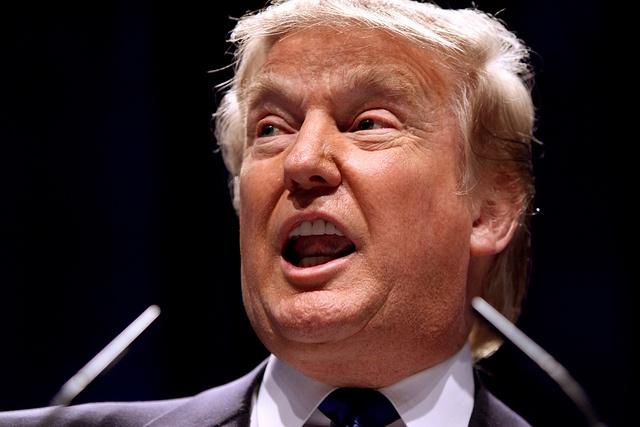
America has a proud tradition of corporate philanthropy, starting with the Carnegies, Rockefellers and Mellons of last century. Such largess has been matched, perhaps even exceeded, by the likes of Bill Gates, Warren Buffett and Pierre Omidyar today. The result is a stronger and better country, thanks to funding education and libraries, investments in science and technology, and improvements in public health and urban renewal.
But this legacy is under attack by Donald Trump and his eponymous foundation. A closer look at the Trump Foundation reveals it operated less like a charity than the Republican candidate often champions -- but upon questioning refuses to share any details. Instead, a Washington Post investigation suggests the Trump Foundation was used more of as a legal fund.
Trump cashed in at least $258,000 from the Trump Foundation to settle legal disputes, David Fahrenthold, one of the few reporters in the mainstream press who refuses to be cowed by The Donald, wrote in the Washington Post this week.
And that money was not even Trump’s money, but that of others who donated to his foundation. By most definitions, the man who wants to become the nation’s 45th president has been operating a slush fund.
One case, almost a decade ago, involved a $120,000 fine from the city of Palm Beach, Florida. It centered around a dispute concerning the height of a flagpole on Mar-a-Lago, Trump’s estate and club in the Sunshine State. Trump agreed to settle with the city by promising a $100,000 donation to a veterans’ charity. But the check did not come from Trump or one of his businesses, but his foundation.
Another instance involved a lawsuit filed against one of Trump’s golf courses in New York. The settlement’s terms included a provision that Trump or his business would donate to a charity of the plaintiff’s choice. But Trump again sent a check to a veterans’ charity through the Trump Foundation, to which he has not contributed any of his own funds since 2007.
Internal Revenue Service rules prohibit private foundations from using donated funds for personal or business use, otherwise defined as self-dealing. Whether or not such “donations” to veterans’ groups were to account for Trump's five draft deferments during the Vietnam War, or atonement for not contracting sexually transmitted diseases (his “personal Vietnam”) during his university years, such transfer of funds by any business leader should be the focus of a legal investigation.
Trump and his supporters quickly retort by pointing to Hillary Clinton’s email server and her feting of global leaders to score support for the Clinton Foundation and the Clinton Global Initiative (CGI). But Clinton’s email server drama was put to rest, albeit harshly, by the right-leaning FBI director who led the investigation. And as far as the CGI controversy goes, all large donors to large foundations are glad-handled, and there is no evidence that any of Clinton's meetings while Secretary of State resulted in any special favors from the U.S. government. Furthermore, the CGI has done a bevy of work from health initiatives to education programs, which it claims had an impact on 435 million people in over 180 countries. No one has yet tried to counter those accomplishments.
Contrast those accomplishments with the Trump Foundation. The foundation has no public website, and the only things the public knows about its work come from Trump's rallies and interviews. Trump's high praise for his foundation is often followed by a complete lack of transparency when reporters, such as Fahrenthold, ask follow-up questions.
The real scandal is that Trump, in the words of MSNBC’s Steve Benen, is operating a “slush fund.” This candidate’s use of other people’s money to pay off his legal obligations makes a mockery of American philanthropy. And Trump’s behavior also goes against the orthodoxy of the political party he hijacked in two ways: first, personal responsibility; second, his perverse use of a charity, which to Republicans should serve society via finance and community work instead of the government.
Donald Trump sends a message that siphoning off money from a charitable foundation is fair game – as long as you don’t get caught and have the resources to litigate yourself out of such a mess.
Image credit: Gage Skidmore

Leon Kaye has written for 3p since 2010 and become executive editor in 2018. His previous work includes writing for the Guardian as well as other online and print publications. In addition, he's worked in sales executive roles within technology and financial research companies, as well as for a public relations firm, for which he consulted with one of the globe’s leading sustainability initiatives. Currently living in Central California, he’s traveled to 70-plus countries and has lived and worked in South Korea, the United Arab Emirates and Uruguay.
Leon’s an alum of Fresno State, the University of Maryland, Baltimore County and the University of Southern California's Marshall Business School. He enjoys traveling abroad as well as exploring California’s Central Coast and the Sierra Nevadas.














